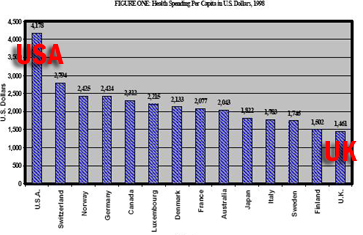Ready for a “my eyes glaze over” moment? Just see this pro-torture op ed by Alan Dershowitz. In fact, just look at the headline: “Democrats and Waterboarding: The party will lose the presidential race if it defines itself as soft on terror.”
Please. The Right has been screaming that “Democrats will lose the trust of the American people if they define themselves as soft on [CHOOSE ONE: Communism, spies in the State Department, the nuclear threat, defense, crime, Islamofascism] since before I was born, which wasn’t exactly last week. Most of the time the allegation of “softness” is pure hysteria and has little to do with any actual softness. About half the time righties are whistling in the dark about what voters will do.
Over the years I’ve observed that voter opinion on security issues goes in cycles. For a time voters want to be “tough,” followed by another time in which they are tired of being tough and paying for bloated military budgets. I suspect we’re coming to the end of a “tough” cycle.
Cernig of Newshoggers has a fine takedown of Dershowitz, so I don’t have to write one. (See also Sadly, No.) I only want to add that favoring strong and effective antiterrorism measures and favoring waterboarding are not the same thing. They are no more the same thing as “effectively countering the spread of Communism” and “nuking China ” were the same thing 50 years ago.
IMO Dershowitz belongs with some of the other “savant idiots” mentioned in this essay by Daniel Davies.
Being extremely intelligent is rather like fucking sheep – once you’ve got a reputation for either, it’s extremely difficult to get rid of it. If someone was, at some long gone time in the past, a boy genius or an academic superstar, then they’re “incredibly smart” for life, no matter how many stupid things they actually say or do.
The cases on my mind at the moment are Enoch Powell and Larry Summers, but I daresay I could dig up a dozen more if I spent the time. Both of them amazingly intelligent, “scary smart”, capable of quoting reams of Ancient Greek at you while simultaneously calculating the complex conjugate of a plate of spaghetti, backwards. On the other hand, could someone tell me one single example of a clever thing either of them did or said? Not so easy.
In fact, both of these famously intelligent men are not famous for intelligent things they did or said, or even for possessing a modicum of ordinary common sense. They’re famous for actually stupid things that they did and said. In fact, as far as I can tell, the career trajectories of nearly everyone commonly regarded as a “genius” seem to be marked by one boneheaded blunder after another.
Seriously, how stupid do you have to be to get up in front of a “Women in Science” conference and tell them that the reason you don’t employ many women as science professors is that they aren’t good enough? Incredibly intelligent, apparently, that’s how stupid. How stupid do you have to be to not only start talking about “the River Tiber foaming with blood”, but then subsequently to claim that you didn’t realise that it would be controversial? Apparently, only the cleverest man in the House of Commons has what it takes to be as dumb as that.
What this suggests to me is that we greatly overvalue book-larnin’ these days. Lots of otherwise sensible commentators will regularly admit that a “genius” politician was not very good at politics, or a “genius” academic administrator was a terrible manager, but then continue as if they regarded mere incompetence at one’s chosen career to be of secondary importance, compared to the far greater value of being a genius.
In fact, I’d put most of our public “intelligentsia” in the same pot.
Yesterday’s state and local elections showed us that many “hot button” issues dear to the Right had little impact on voters. For example, Amy Gardner writes at the Washington Post “In the Ballot Booths, No Fixation on Immigration.”
Voters across Virginia chose candidates in state and local elections yesterday not out of anger over illegal immigration but based on party affiliation, a preference for moderation and strong views on such key issues as residential growth and traffic congestion.
With a few notable exceptions, the trend benefited Democrats and not those who campaigned the loudest for tough sanctions against illegal immigrants.
At The Hill, Jonathan Kaplan writes “GOP turns impeachment resolution against Dems.”
House Republicans on Tuesday nearly forced Democratic leaders to vote on a resolution to impeach Vice President Cheney.
Anti-war presidential candidate Dennis Kucinich (D-Ohio) introduced a privileged resolution, used to circumvent the committee process, to get his impeachment measure to the House floor.
The vote to kill Kucinch’s privileged resolution began as a largely party-line affair, but halfway through the vote, Rep. John Shadegg (R-Ariz.) persuaded Republican leaders to get rank-and-file GOP lawmakers to change their votes to force the debate.
At one point, the vote to table the motion stood at 246-165. Once Republicans began switching their votes, momentum swung the other way. When the vote stood at 205-206, some Democrats began switching their votes.
The vote to kill Kucinich’s resolution finally failed 162-251, giving Republicans the opportunity to watch Democrats debate whether to impeach Cheney — a debate in which many liberal Democrats were more than willing to engage.
House Republicans clearly enjoyed watching Democratic leaders squirm during the series of votes, which lasted more than one hour.
I would have enjoyed watching Democratic leaders squirm also, and I’m sorry I missed it. But if the Republicans think that impeachment is a loser issue for Dems, they need to get out more. As Kagro X says, “Republicans believe everything is good for Republicans.” Well, wait ’til next year …

